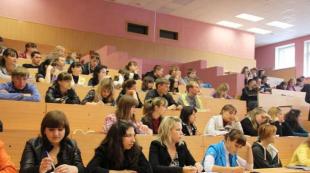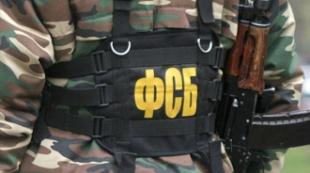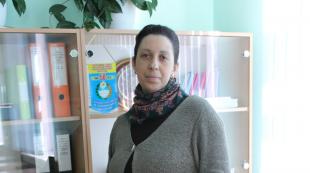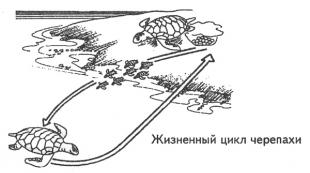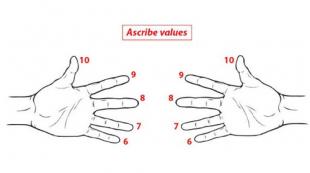After sunzmgu to the academy of the fsb. Admission to FSB
Working in the national security agencies is the dream of many young people. In order to enter the Academy of the FSB, in addition to successfully passing the entrance exams, it is necessary to pass a number of tests and checks. Not all of them cope with them - only a sixth of all candidates.
What qualities should an applicant have?
The admission committees of the universities of the FSB of Russia pay special attention to the personal qualities of the future intelligence officer. The personal file of each candidate is studied in detail: his motives, interests, life priorities, income level, biography and even bad habits. His psychological and moral portrait is being compiled.
Among the necessary qualities and skills for those wishing to enter the Academy of the FSB are the following:
Despite the serious preliminary selection of applicants according to all these criteria, the final competition is quite high - from 10 people per place. There are many girls among the candidates, although they can enter the AFSB only at the Faculty of Foreign Languages and the Faculty of Correspondence Education of the IPSO.
The procedure for selecting prospective students
Lists of students of the academy are formed by representatives of the Federal Service. They very carefully study the personal files of applicants, test results and select only the best - those who have passed all stages of verification.
An applicant of the Academy of the FSB must:
- have a complete secondary education (secondary special education is also allowed);
- be between 16 and 24 years old (if you have not served in the army, then the age limit is 22 years old);
- have excellent physical fitness.
The procedure for selecting future military and intelligence officers of the FSB is carried out in several stages:

Exams and Grading Procedure
For graduates of the 11th grade, the competitive selection is based on the results of the Unified State Examination and internal exams of the Academy.
Depending on the faculty and specialty, the results of the USE in certain subjects are taken into account:
- Russian and foreign languages;
- mathematics;
- physics;
- story;
- social science;
- literature.
The results of the exam are evaluated in the format of "passed" and "failed". An applicant receives a credit if the scores of the unified state exam correspond to the minimum level or exceed it.
Exams for admission to the AFSB are held in the same subjects as the USE. Information about what disciplines are needed for a particular faculty can be found on the official website of the Academy, on ICSI, for example, physics and mathematics are additionally handed over in writing.
Physical fitness standards
 The physical training of those who want to enter the FSB of Russia must comply with accepted standards. For women and men, they differ not only in quantitative but also in qualitative indicators. The results are evaluated on a scale of "pass" and "fail". Below are the minimum standards under which an applicant receives a credit.
The physical training of those who want to enter the FSB of Russia must comply with accepted standards. For women and men, they differ not only in quantitative but also in qualitative indicators. The results are evaluated on a scale of "pass" and "fail". Below are the minimum standards under which an applicant receives a credit.
For men:
- 100 m run - 14.8 sec.;
- 3 km run - 13 min. 3 sec.;
- pull-ups - 7 times.
For women:
- 100 m run - 17.4 sec.;
- running for a distance of 1 km - 5 min. 10 sec.;
- swinging the press in the prone position - 34 times in 1 minute.
Thus, in order to enter an educational institution of the FSB after the 11th grade, it is necessary to have certain moral and volitional qualities, a developed intellect and excellent physical shape. For future military, law enforcement and intelligence officers, the Academy of the FSB of Russia provides high-quality training in eight specialties at seven faculties.
For those who are going to enroll in full-time studies, internal examinations are held in July. Applicants of the correspondence faculty, take exams in September. Evaluation of the results of entrance examinations is carried out according to a hundred-point system.
In order to become an employee of the Federal Security Service, of course, you need to get a higher education, but to solve the question “where to go to study?” First you need to decide on the choice of profession. In the FSB, as well as in any other organization, a person must perform a certain labor function, that is, work in a certain profession.
The structure of the FSB bodies includes, in addition to the Central Office of the FSB of Russia and local territorial bodies, also bodies, security bodies in the troops. The Federal Security Service has its own aviation squads, special forces, units that provide auxiliary assistance in the implementation of the tasks facing the state security agencies. Such "auxiliary" units are understood as research, expert and medical institutions subordinate to the FSB.
Thus, the FSB agencies require employees of various specialties: lawyers, experts, and other military specialists.
Universities FSB
The main educational institutions that train personnel for counterintelligence are universities that are part of the FSB system. Such universities are available in various regions of Russia. These are the institutes of the FSB of Russia in the cities of St. Petersburg, Nizhny Novgorod, Yekaterinburg, and the Academy of the FSB of Russia, located in Moscow. However, in the Academy of the FSB of Russia, basically, acting employees improve their skills, while everyone who wishes has the opportunity to enter the institutes of the structure. The rules and procedures for admission to FSB universities can be found on the official website of the selected institute.
In addition to these educational institutions, there are universities in the FSB system. These are the Border Academy of the FSB of Russia in Moscow, and the Border Institutes in Moscow, in the Moscow Region (in the city of Golitsino, Odintsovo District), as well as the Kaliningrad, Kurgan and Khabarovsk Border Institutes. Institutes have branches in other cities of the country. For example, in the Stavropol Territory there is a branch of the Golitsyn Border Institute.
In the educational institutions of the FSB, you can get higher education in the specialties "legal support of national security", the psychology of official activity, "border activity". These areas of training fill the ranks of personnel with employees of the foreign and domestic intelligence departments, high-class psychologists and lawyers in various fields, as well as officers of the border units.
But this is not all the specialties necessary for the operation of such a powerful structure. Technical means play an important role in the work of scouts, and, therefore, technical specialists are required to maintain them and even develop and create them. Specialists in this category are trained both in institutions of higher education, such as the Institute of New Information Technologies in Moscow, and in civilian educational institutions. Graduates with rare technical specialties are often invited to work in the system.
Military universities
The bodies of the FSB are known to the townsfolk, mainly by the brave fighters of the Alpha, Vympel detachments, and other special forces. Contrary to popular belief, service in these units also requires higher education. You can become a representative of the elite by graduating, for example, from the RVVVDKU, popularly called "Ryazanka", where specialists-saboteurs, military translators, and officers of landing units are trained. You can also graduate from a college in St. Petersburg, where the so-called Marines are educated. Among the special educational institutions of the FSB is the Coast Guard Institute, which is located in the city of Anapa.
Service in the FSB is not only intelligence, the FSB also carries out anti-terrorist activities, is engaged in the disclosure and investigation of crimes against state security. Future and operational employees can receive education in higher educational institutions of the system of the Ministry of Internal Affairs of Russia in the relevant areas of training.
The FSB Academy differs from other universities in its special admission conditions. Applicants will have to pass a medical examination, polygraph testing, a physical fitness test and a number of additional exams, in addition to the exam. Nikolai n, a recent graduate of the Faculty of Foreign Languages, a former FSB officer, talks about how to enter the academy.
Forbidden faculties
People enter the AFSB either out of family tradition or out of crystal clear romance. By the way, subsequently such “romantics” of our profession create family traditions. I will make a reservation right away: for the investigative and counterintelligence faculties, for the most part, places are signed among their own. There is a small opportunity to enter the Faculty of Foreign Languages and IKSI (Institute of Cryptography, Communications and Informatics at the Academy of the FSB: the best information security specialists in Russia are trained here). Again, not very big. Those who speak rarer languages: French, Spanish, Chinese or Hindi have a chance to enter without blat.
How to proceed
If an applicant is afraid of any difficulties upon admission, then you should not meddle in the authorities. Everything is clear here - you decided, so you act to the end. Here are the figures: out of 150 applicants, 20 people reach the internal exams.
The medical board is a difficult test. Here everything is on an equal footing, despite the fact that someone has a grandfather-general. By the way, during the entire training, health workers check your health every six months. When I studied at the Academy, a guy died on a daily run - his heart stopped, which could not withstand the loads. It turned out that he was a relative of some prominent official in the organs. There was a huge scandal, from that moment the selection criteria became even more stringent.
On the polygraph, you are like a transparent sheet, your inner convictions become visible to the personnel officer, as in purgatory.
Therefore, it is important to be a patriot, to appreciate the rank of an officer, to express it honestly and truthfully, without pathos. No kidding, this is important. After successfully passing the polygraph, you will have to check your physical fitness. The standards in the AFSB are not for wimps - for the test you need to pull yourself up 11 times without shortness of breath, run a hundred meters in at least 13.6 seconds, and overcome three kilometers in 12 minutes. There is only one advice here: if your hand reaches for a beer or a joystick in the evening, go run in the park or pull iron in a rocking chair.
A very sure step to prepare for additional tests is admission to courses at the Academy. It is a good preparatory school, but not always sufficient. For example, speaking German at the level of a native speaker, I worked hard with a tutor in foreign, Russian and social studies for two years. I wanted to make sure I threw all my strength into it. As a result, he entered the top twenty enlisted.
Education system
Already from the first year, my illusions about studying there began to dissipate. The first-year student immediately feels that he enters the system. You know that your ten years are already booked. The first five of them you strain all your strength, you study. The second five you give back to the Motherland for a free and one of the best education in the world. It is not simple. You are either weak or you can handle it. I'm really proud that I got the chance to study here. The level of linguistic, mathematical, physical and legal training is unlikely to be compared even with MGIMO and Moscow State University. Legendary personalities teach at the Academy, which, unfortunately, I cannot tell. Some of them were awarded the title of Hero of the Soviet Union and Hero of Russia. Many subjects are taught in special classrooms, from which nothing can be taken out - no notes, no pens. Everything they teach there is classified as "secret". The Academy has a very strong legal background. True, you need to be ready for it yourself - at lectures, students usually write out 30-40 pages each.
Scholarship
It is known that the scholarship at the Academy is huge compared to civilian universities - about 15,000 rubles a month. But please don't compare us to a citizen. In the AFSB you are in the service, hard work from 7 am to the evening. This is a strong emotional pressure every day. In my opinion, our scholarship is even small.
Party Features
Girls at our faculty study special. Intelligent, restrained, with excellent physical fitness.
Many find their soul mates here. For example, I got married as soon as I received my diploma. After receiving a diploma, you spend five years in the service of the Fatherland. From Moscow they are often sent to serve in Rostov, Volgograd. There is also service in hot spots. If we get lucky. It turns out that with classmates you can spend ten years side by side. It happened to me too: during this time I found true colleagues, loyal friends.
"In civilian life" is not quite aware of the concept of "a devoted heart." With my friends, I experienced misfortune, poverty, visited all their weddings. They have rescued me many times. If any of them have difficulties, I am ready to fly to their place of service the next day.
Employment
Now the fate of my friends has developed in different ways. Someone continues to serve, someone moved to Alpha, some, like me, have taken up legal civil service. There were no problems with employment - with a diploma from the AFSB they took even without an interview for a good position. Why didn't I continue my service? Disappointed in the system. Understand, in the bodies of 90% of incredibly worthy, patriotic, gifted people. They are the color of the country. But there are 10% of corrupt officials. It's probably like that everywhere, but I couldn't bear it.
Excerpt from the rules for admission to the Academy of the FSB
Additional entrance examinations of the profile orientation are carried out in the following subjects:
a) to the Faculty of Investigation (streams of training investigators and specialists in operational activities), the faculty of distance learning (training stream based on secondary (complete) general education) IPOS:
- Russian language (in writing);
- social studies (in writing).
b) to the counterintelligence faculty (streams of training operational officers with knowledge of a foreign language) IPOS:
- Russian language (in writing);
- foreign language (in writing);
- social studies (in writing).
c) to the counterintelligence faculty (a stream of training specialists in operational activities who own modern information technologies) IPOS:
- Russian language (in writing);
- mathematics (in writing);
- social studies (in writing).
d) to the Faculty of Foreign Languages of the Academy:
- foreign language (written, oral);
- Russian language (in writing),
e) to the faculties of ICSI:
- mathematics (in writing);
- physics (in writing).
Additional entrance examinations for full-time and part-time courses of study are held in June-July of the year of admission, for courses of distance learning - in September of the year of admission. The schedule of entrance examinations is brought by the Academy to the security authorities (departments) no later than 1 month before their start.
Defense of the state has always been an honorable activity. People who directly carried it out enjoyed great honor and authority in society. In addition, the constant wars that have been fought throughout human history have significantly enriched the representatives of the military class. In some countries, the military was considered the highest caste with the most rights. A great example is the Japanese samurai. However, on the territory of our fatherland, warriors and their achievements have also been glorified at all times. It should be noted that the training system for such people is of great importance. After all, the need for a professional military will never disappear. The very system of training soldiers requires a special approach, since their skill consists not only of physical strength, but also of certain psychological qualities. In this case, it is worth noting the specifics of training the elite of all armed and security forces, that is, intelligence and state security. The latter structure performs extremely important functional tasks in the modern world. Therefore, the training of its representatives should be carried out at the highest level. In the Russian Federation today there is a Federal Security Service. This department is responsible for ensuring the security of our country. Specialists for its ranks are trained at a special Academy of the FSB.
What's happened
As mentioned earlier, in any state, power units play an important role. The Federal Security Service of the Russian Federation belongs to such formations. The number of departments today is classified. The main task is to provide the Russian Federation.
It should be noted that the FSB, according to existing legislation, is a body that is authorized to carry out operational-search activities. Departments are replenished by recruiting for military and civil service. According to the regulations governing the work of the FSB, its activities are carried out in the following areas, namely:
counterintelligence;
Fight against terrorism;
Intelligence activities;
border activity;
Information Security;
The fight against crime of a particularly dangerous form.
The main department is the security of the Russian Federation.
General information about the higher educational institution
The Academy of the Russian Federation is a military institution that trains officers for the FSB. In addition, personnel for other intelligence agencies, as well as special services of friendly states, are also trained in this institution. That is, we are talking about a complex military institution with a fairly broad preparatory base.

The Academy was established in 1992 by a special decree of the President. The basis for the formation of this institution was the Higher School of the KGB named after Felix Edmundovich Dzerzhinsky.
The history of the creation of the academy
The Academy of the FSB, whose faculties are presented in the article, begins its history from the courses of the All-Russian Extraordinary Commission, formed in 1921. The courses prepared the operational staff for the Cheka. It is worth noting that a significant contribution to the training was made by teachers who had a fairly large operational experience gained in the implementation of special operations "Trust" and "Syndicate". In 1934, cardinal changes took place in the structure of the power departments of the state.

The People's Commissariat of Internal Affairs was created. This leads to the creation of the Central School of the Main Directorate of State Security within the structure of the Soviet NKVD. During the Second World War, the educational institution graduates several thousand workers who managed to organize a fairly effective fight against the Nazis. Another reformation of the school takes place in 1952. On its basis, the Higher School of the MGB of the USSR is being formed. In 1962, this educational institution was named after Felix Edmundovich Dzerzhinsky.

Academy structure
The FSB Academy, whose faculties are presented in the article, trains personnel in many specialties that are in demand today in law enforcement and military departments. The structure of a higher institution contains three main segments, which include training.
1) The Institute for the Training of Operational Personnel provides qualified personnel training in a number of key areas of the FSB's activities. Within the framework of this division of the academy, there is an investigative faculty and a counterintelligence faculty. In both cases, graduates of the institution receive a diploma in the specialty "Legal support of national security." At the first one, employees of the FSB investigative units are trained, and at the second, operational ones. At the same time, the counterintelligence faculty trains employees in two specific areas: operational activities with knowledge of foreign languages and knowledge of modern information technologies.
2) The second subdivision of the Academy is the Institute of Cryptography, Communications and Informatics. Today, its graduates are rightfully considered the best specialists in the field of information security. At the end of the training, employees are given qualifications such as “information security specialist”.
3) The Faculty of Foreign Languages is the youngest department of the university. It was created in 1990. The faculty trains professional translators for the FSB.
Features of admission - the first stages
There are many features of the recruitment process that the FSB Academy is famous for. Faculties and specialties of different directions are replenished with personnel on absolutely equal terms. The first stage of selection is the medical board. To enter the academy, you must be in good health. It will be checked throughout the entire period of study at the institution.

The second stage is a polygraph. Many applicants mistakenly consider such a test to be something easy. However, a polygraph checks honesty, a person’s respect for military service, his compliance with management, etc. Therefore, the test must be taken as seriously as possible.

Special exams and physical fitness assessment
If the applicant does not have any comments on his mental and physiological level, then he is allowed to internal exams. Physical fitness is checked by three tests: pull-ups, running 100 and 3000 meters.

Additional tests are exams in individual disciplines. For admission to a particular faculty, knowledge in various subjects is checked. For example, the investigative unit conducts an additional exam in social science and the Russian language, and the Institute of Cryptography - in physics and mathematics. It is quite good to use special preparatory courses before entering, which increase the level of applicants.
Learning process
The Academy of the FSB, the faculties of which are presented in the article, prepares The learning process is quite complex and specific. Students actively study law, mathematics and foreign languages. Much attention is paid to physical training, as it is one of the main subjects. Most items are classified. Some subjects are taught in such a way that even pens, let alone notes, cannot be taken out of the classrooms.
Daily life of students
The fact that studying at the FSB Academy can bring people together is not an exaggeration. Throughout the years of service, students in this institution are almost constantly in contact with each other. But this is not all the features of training. For example, it is undesirable for students to distribute statements about their studies on social networks. The prohibition also covers talking to friends about it.
It should be noted that a large proportion of all students are girls. They, equally with the representatives of the stronger sex, can declare that they, as professional cadres, were forged by the famous FSB academy. "Faculties for girls" is a common misconception. There are simply no such divisions. Girls enter, along with boys, those faculties that are provided for by the structure of a higher educational institution.
Academy management
For many years, the academy was headed by representatives of the highest officers. To date, the head is Ostroukhov Viktor Vasilyevich. He holds the rank of Colonel General. At one time Ostroukhov Viktor Vasilyevich graduated from the Higher Red Banner School of the KGB. In addition to military activities, he also conducts research and is a doctor of jurisprudence.
So, we examined what the FSB academy is. Faculties, exams and the specifics of education were presented in the article. In conclusion, it is worth noting that work in state security agencies is not suitable for everyone. But if you have firmly decided to become employees of this department, then you need to discard any doubts and stubbornly go towards your goal.
Before submitting documents and starting preparations for entering an educational institution, you need to decide for yourself that you are ready to connect your life with this structure.
Unlike civilian universities, they have a narrow prof. direction and after graduation it will be difficult to work in another area.
Admission to a civilian university is a choice of a profession, and admission to a university of the FSB of Russia is immediately a choice of a profession and, one might say, a place of work.
Preparation for admission
This is not to say that there are no difficulties with admission. However, if you have the preparation and desire, you can do it.
It is better to start preparing for admission at the beginning of the graduation class (grade 11). First of all, you should contact the department of the FSB of Russia at the place of residence with a statement of intent to enroll in an educational institution of the FSB, fill out a questionnaire and provide copies of personal documents (birth certificate, passport, military ID and diploma).
Based on the data and documents that the candidate provides, an audit is carried out. All data is carefully checked.
An obstacle to admission to the state. secret and receipt will be: relatives living for a long time abroad; relatives who have been prosecuted; also if the candidate used drugs.
In addition to the verification, a conversation is held with an employee of the personnel department of the FSB department, during which it is found out what motivated the candidate to go to the FSB of the Russian Federation. If everything is in order with the interview and verification, the candidate receives a referral for a medical examination (VVK), after which he is required to pass the physical standards. training (running 100 meters, running 3 km, pull-ups), which are evaluated according to the system "pass" and "fail".
Upon passing the test, in early March, you need to write an application to the selected university. In it, the candidate must indicate: the faculty, the direction of training and specialty, the list of subjects for the USE and additional entrance exams, and also sign that he is familiar with the admission rules.
Universities of the FSB of Russia
On the territory of the Russian Federation there are 14 educational institutions subordinated to the FSB of Russia.
These are the FSB Institutes in St. Petersburg, Nizhny Novgorod, Yekaterinburg and Novosibirsk. FSB Academy in Moscow. Moscow, Golitsyn, Kaliningrad, Kurgan and Kharabovsky border institutes of the FSB. Academy and Border Academy of the FSB in Moscow. Coast Guard Institute in Anapa. Border Academy in Moscow.
Each university has its own list of faculties, some of them take both boys and girls (Faculty of Foreign Languages). Each faculty has its own subjects for which you need to take entrance exams.
You can enroll in full-time education. Without military service from 16 to 22 years and after military service up to 24 years. But part-time education is available only to current security officers.
Admission
On the call of the university (in the first days of June), the candidates arrive to take the entrance exams. First, they undergo a second medical examination, after which they are allowed to take entrance exams. General examination for all physical. training and one of the core subjects. According to the results of exams and EGE, the total score is displayed, admission is carried out on a competitive basis.
If a candidate does not pass the competition for higher education, he can go to study in secondary educational programs (training lasts 2.5-3 years, after graduation he is awarded the title of ensign and, if desired, you can complete your studies in absentia at any University of the FSB). If you did not pass the competition, you can try again in a year.
After graduation, the rank of lieutenant is awarded.
Work experience and length of service are counted from the first days of training. The first two courses are considered for a year in the army, after the first contract is signed, and a monetary allowance is issued, approximately 16,000 rubles.
After graduating from the institute, there is a distribution to units for service. Excellent students are given the right to choose the place of service, so there is an incentive to be such. Military personnel are provided with a social package, free honey. service, good pay.
Reviews about the Universities of the FSB
According to the feedback of those who entered, it is difficult to enter the FSB universities without blat, but it is possible. According to the standards, the guys passed 20 pull-ups, a 3 km cross for time and other physical norms. They also talk about polygraph testing, and naturally about the absence of a criminal record in several generations of relatives.
Students enter into a contract under which they must work in the system for a number of years, or return the money that the state will spend on your education. Already during your studies, you run the risk of being banned from traveling abroad, and spend your subsequent vacations maximum in the Crimea.
Outfits, living in the barracks (at least up to the 3rd year), life according to the Charter, enhanced physical training - everything here will remind you in many ways of ordinary military universities.
If you are a girl, then you are dear to the faculty of military translators. At the same time, one must understand that after graduation from an educational institution there will be a mandatory distribution (and you may have to go far from home and from the center of the country).
Also, you will be a restricted worker, both during the service and for 5 years after it. Therefore, there will be no practice with native speakers, you will translate audio recordings and written documents. Going to the faculty of translators, a person may dream of something else.
You will not work abroad. The fact is that the FSB is counterintelligence. And it is designed to work to suppress intelligence and other operations of foreign intelligence services on the territory of their country. And employees of the foreign intelligence service (SVR) go to work abroad.
That is, all these points must be carefully thought out in advance.
Students also note the high quality of education. They rejoice at the upcoming benefits (travel, meals, extended vacation) when applying for a job after graduation. They talk about a stable salary (the last figure I saw on the forums is 36 thousand.
Moreover, if you live somewhere in the Russian outback, then this is quite a worthy payment. But if we proceed from the level of civilian salaries and prices in Moscow and St. Petersburg, then this is a very low allowance. So it all depends on your circumstances, on what drives you.
18 comments on ““Universities of the FSB of the Russian Federation and admission to them””
My grandson graduated in 2016 from the Stavropol branch of the Golitsinsky Border Institute of the FSB and since that time has been serving at one of the frontier posts of the Dagestan Border Guard. I have a question - can my grandson study at the correspondence department of the Moscow Border Institute or not? If it can - then what is needed for this? Please let me know.
Retired lieutenant colonel - Alexander Dmitrievich Grafkov.
Hello! Tell me how to be late handed over the documents to the FSB, everyone passed the polygraph passed on May 24, 2018, they say that the documents do not meet the deadlines at the end of May, they go to Moscow, are there any exceptions?
Hello. I am 31 years old. There is a higher education in the specialty Applied Informatics "in Economics". I work in the field of information security. Can I enter the FSB university at the faculty related to my professional duties. And is there distance learning? If possible, a list of such universities.
Good evening. A question of this nature. Can a person be trained if his father is a former police officer (company commander) and was dismissed from the internal affairs bodies for very negative reasons. Those. under articles: abuse of office and extortion from subordinates. Convicted and the court issued a suspended sentence for a year and a half!?
Good day. Can I enter the Novosibirsk institution of the FSB being a citizen of Kazakhstan of Russian nationality and studying at the Sports School of the Olympic Reserve?
